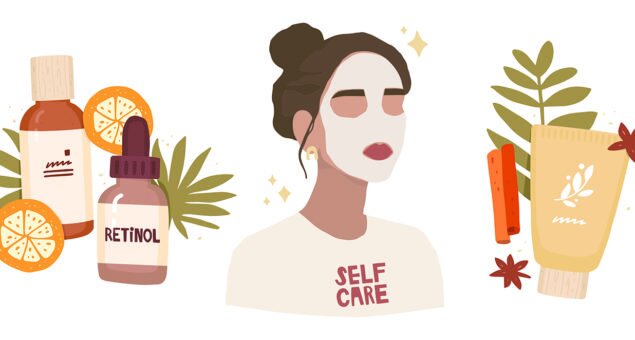
To the untrained ear, all these words blend together and mean the same thing. I will admit that when I first started in this industry a decade ago, I pretended I knew the difference but was merely “faking it ’til I made it.” After years of working in and studying the skincare world, I want to break it down for the regular person to understand, for they are not the same thing and are, in fact, very important for lots of reasons that most do not know.Let’s start at the beginning, with the basics. Retinoids. What are they? Retinoids are a class of topical medications. A slightly more advanced definition is that retinoids are large compounds that contain Retinol (Vitamin A) in both synthetic and natural derivatives. Essentially, Retinoids are the name of a group of skincare products with Vitamin A in them. Of all the Retinoids, the ones you probably hear the most about, and the ones we will mainly be addressing, are Retinol, Retin-A, and tretinoin.To make this a tad bit easier to understand, Retin-A and tretinoin are the same things.
Retin-A is the brand name and is made of the active ingredient generically known as tretinoin. The simply explained difference between Retinol and Retin-A (tretinoin) is their strength. While strength is a major difference, there are still more significant differences between the two. Retinol is available over the counter where Retin-A is classified as a medication, meaning you can only get Retin-A(tretinoin) from your doctor. For a good reason, it can cause side effects — including severe congenital disabilities. Retin-A (tretinoin) is the most effective form of vitamin A and the most tested skincare product on the market. Retin-A (tretinoin) is FDA approved to treat photoaging and has been proven to reverse sun damage.How they work with your skin on a cellular level varies as well. Without getting too technical, a Retinol uses the enzymes in your skin to convert the retinoic acid before it can be put to use, making the results slower and less potent than Retin-A, which does not require help from your skin enzymes to make it usable and directly penetrates. It is also because of this that retinol might be less irritating to your skin than Retin-A. Please know you may still experience some form of downtime or irritation.The benefits of Retinoids are impressive. Study after study, they have proven to stimulate collagen, help treat acne, soften wrinkles, fade pigmentation, and encourage cellular turnover (more on cell turnover in next month’s post). It is no surprise that these magic products have been deemed the holy grail of skincare. There are a few key things you must know before adding this into your daily routine. Retinoids will come with “downtime.”
The degree of downtime is going to vary depending on the type of Retinoids used. Common side effects are micro peeling, redness, drying of the skin, and can last anywhere from 2-6 weeks. While there are things we can do to help combat this effect, you cannot escape some form of temporary discomfort.There are lots of myths floating around about Rets, and they can leave anyone feeling confused. Here are the main ones I hear and the ones I think are most important to address:
- Myth OneRetinoids will thin the skin. Good news, this is NOT true; in fact, quite the opposite. Since Retinoids stimulate collagen, they actually help to thicken the deep skin.
- Myth TwoRetinoids will make you sun sensitive. FALSE! Retinoids break down in the sun, hence why we use Retinoids at night. Studies have shown that retinoids will not increase the risk of sunburn. HOWEVER, this does NOT mean to go without sunscreen. If I can’t scare you straight with the risk of skin cancer, just remember most extrinsic aging is due to sun damage.
- Myth ThreeRetinoids are for people 30 or older. NOPE. Retinoids were first used to treat acne in younger patients before learning about all their amazing anti-aging properties. Prevention is key, and retinoids are safe to use at any age as long as the individual is neither pregnant nor lactating.
It’s best to talk with your skincare provider about the best options for you, but at least now, you will understand a little more as they say all these very similar-sounding terms.If you do not have a skincare provider, I would suggest looking into one. Your skin will thank you!
We recommend these products.



